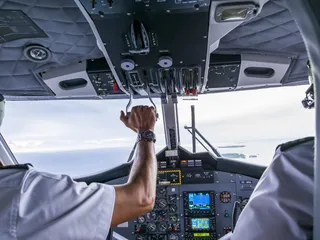Employment Practices Raise Training Safety Concerns
Contact Our Team
For more information about how Halldale can add value to your marketing and promotional campaigns or to discuss event exhibitor and sponsorship opportunities, contact our team to find out more
The Americas -
holly.foster@halldale.com
Rest of World -
jeremy@halldale.com

A new EU study from Ghent University highlights how insecure employment contracts in aviation are affecting both crew well-being and safety culture. The UGent 2.0 report draws on responses from thousands of pilots and cabin crew across more than 100 airlines in 2024.
The research shows that 10.3% of aircrew are atypically employed, including self-employed staff, often concentrated in wet-leasing operations and low-cost carriers. These crew members report higher job insecurity, weaker union protection, and a reluctance to report fatigue or safety risks. Over 40% say their contract influences critical safety decisions, and 35–45% avoid reporting fatigue or health issues out of career concerns. More than 10% admit they do not report safety incidents at all.
Challenges once limited to atypical contracts now affect the broader workforce. Directly employed staff at legacy carriers report rising stress linked to scheduling and fatigue, while cabin crew and younger staff are especially vulnerable. Respondents describe their airline as treating crew as numbers rather than professionals.
The study also finds inconsistencies between contractual home bases and operational realities, raising regulatory concerns. Eastern European crews report weaker safety cultures, and wet-leasing operators account for nearly a third of serious contractual inconsistencies.
The authors call for urgent EU-level measures to strengthen employment protection, enforce home base rules, integrate well-being into safety management, and improve collective representation. The European Commission’s ongoing review of Air Services Regulation (EC 1008/2008) offers an opportunity to address these issues.
UGent 2.0 was conducted with the European Cockpit Association, European Transport Workers’ Federation, and European Network Airlines Association, funded by the European Commission.


